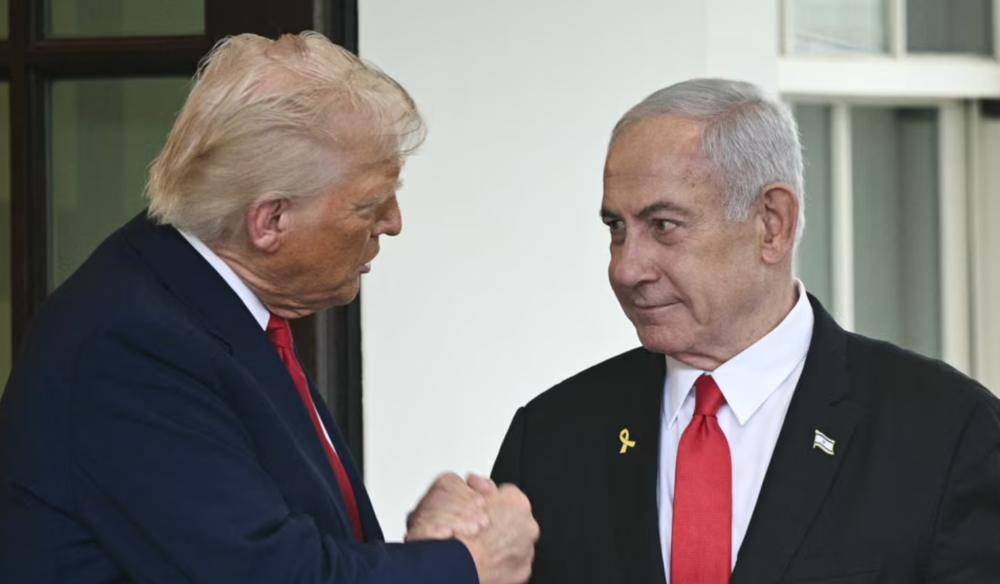
Iran's top diplomat, Abbas Araqchi, has accused Israeli Prime Minister Benjamin Netanyahu of trying to dictate US policy towards Iran, after Netanyahu repeated his call for the complete dismantling of Tehran's nuclear program.
Iranian and American negotiators concluded a third round of indirect talks on Iran's nuclear program on April 26, while a fourth round is scheduled for May 3, most likely in a European country.
Speaking in Jerusalem a day after the talks, Netanyahu said any deal with Iran must aim for the complete dismantling of its nuclear program and also address Tehran's missile capabilities.
"The real deal that works is the deal that eliminates Iran's capacity to enrich uranium for nuclear weapons," Netanyahu said, adding that a good deal must also "include deterrence of ballistic missiles."
Writing in X, Iranian Foreign Minister Abbas Araqchi said it was “shocking... how openly Netanyahu is now dictating to President Trump what he can and cannot do in his diplomacy with Iran.”
The Iranian diplomat stressed that his country was "strong and secure enough" to "thwart any attempts by malicious external actors to sabotage its foreign policy or dictate its direction."
"We can only hope that our American counterparts are equally determined," he added.
Netanyahu's comments came after a deadly explosion hit the Shahid Rajaei port in Iran, killing at least 46 people and injuring more than 1,000 others.
Some speculate that the explosion was related to a shipment of a chemical compound used to produce fuel for ballistic missiles, although Iran denies that any type of fuel was stored at the container terminal.
Farzin Nadimi, a senior fellow at the Washington Institute, told REL's Farda Radio that the bright orange color of the initial fire was consistent with the burning of a component used in rocket fuel.
Public records suggest that Iran received shipments of this chemical at the port earlier this year.
According to some reports, the Donald Trump administration had previously prevented Netanyahu from launching attacks on Tehran's nuclear facilities. However, the US president has said that he himself would be "leading the charge" towards a war with Iran if a deal could not be reached.
Ali Shamkhani, a senior aide to Iran's supreme leader and former national security adviser, warned on April 28 that Israel would face "unimaginable consequences" if it attacked Iran's nuclear facilities.
"The question is: Are these threats the result of independent Israeli action, or are they coordinated with Trump to push forward negotiations with Iran?" he wrote on X. /REL (A2 Televizion)











